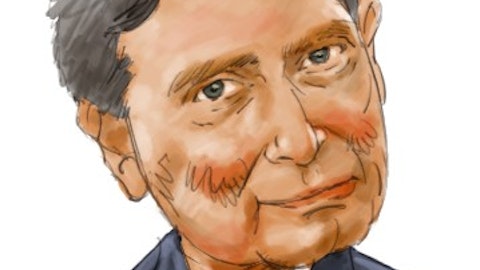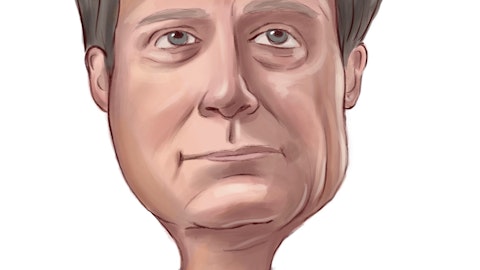Michael Franco: Maybe the only lender, right? There’s a lack of capital for real estate generally and even more so for office right now, given [indiscernible] the U.S. banks particularly are under. So it’s difficult, but not impossible to refinance most assets. The lenders recognize that, the servicers recognize that. And so in every situation, depending on the maturity, right, we start discussions with our counterparties there. And I think the banks, the servicers start with, do I have the right sponsor? Do I have somebody who I think is going to either maintain or add value during this difficult time and get me to the other side? And obviously, given our track record, that answer is an affirmative one always. So I think we’ve done a number of extensions over the last couple of quarters.
We’re working on the 2024 maturities now, even some of the ones beyond in 2025, 2026, and each one is bespoke, right? I think in general, we don’t really want to have band aid solutions, we want to have term. We’d like to get at least three to five years on each extension. We’re prepared if the economic arrangement is fair and balanced, we’re prepared to support the asset, whether that’s through a paydown or investing capital to lease up the building or maintain leasing. But it’s really bespoke situation by situation. But you can rest assured that literally every loan that’s maturing in the next couple of years, we have an active discussion with our lending counterparties. They appreciate that and we’ll generally work through those.
But again, most of those are – the lion’s share are non-recourse and they recognize that as well. So we collectively have to work to an appropriate solution. And as we’ve done to date, I think we will in the vast majority.
Operator: Thank you. And our next question today comes from Camille Bonnel with BoA. Please go ahead.
Camille Bonnel: Good morning. Just following up on the lines of questioning around the balance sheet. Can you update on us on your latest thoughts around this interest rate environment? How do you think about your revolver now that its spreads are tighter than some of the longer-term debt you can raise?
Michael Franco: Good morning, Camille. You’re talking about in terms of using our revolver?
Camille Bonnel: Yes.
Michael Franco: Yes. I mean, look, we’re not interest rate seers. If we were, we wouldn’t be doing the jobs we’re currently doing. I’m not sure anybody is an interest rate seer, by the way. But all we can do is, frankly, be respectful of the forward curve and budget our business based on that with some conservatism built in. So that’s how our cash plan is modelled. And I think you know our company, we’ve always managed our business with a healthier cash balance than almost every other company, certainly in our sector. And I think that serves us well right now. It gives us flexibility to deal with our bonds or anything else that comes up. We’re building PENN out of cash, as you know. So it appears like the fed is done or close to done, doesn’t mean that rates are going to come down in the next year.
Eventually we think they will. But we have to continue to operate our business with rates staying at these levels. So we’re fortunate we have the cash balance. You’re right, we do have two revolvers, which gives us flexibility in how we do things. And so that’s clearly one of the tools that we can use. We will use to the extent we need to, whether it’s dealing with the 2025 bonds, although we’ve got two or three other options other than using the revolver there and dealing with any other maturities that come up. In general, our plan is not to use a lot of our revolver capacity to deal with our secured financing. Those are dealt with one by one. We’re going to deploy capital very judiciously on secured assets. And the revolver there, I would say, is more as a backstop for dealing with the unsecured bonds to the extent that there’s not a better alternative that we see.
Camille Bonnel: That’s helpful color. And specifically around the swaps and caps you have expiring next year, will you be letting those roll? And how should we think about the potential headwinds related to that?



